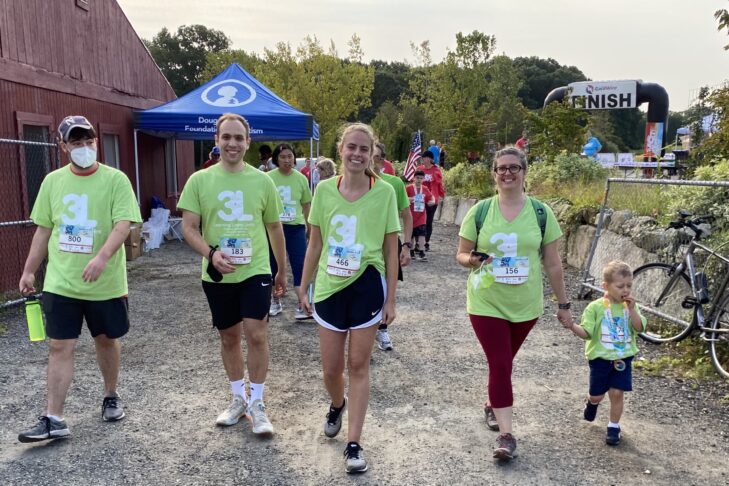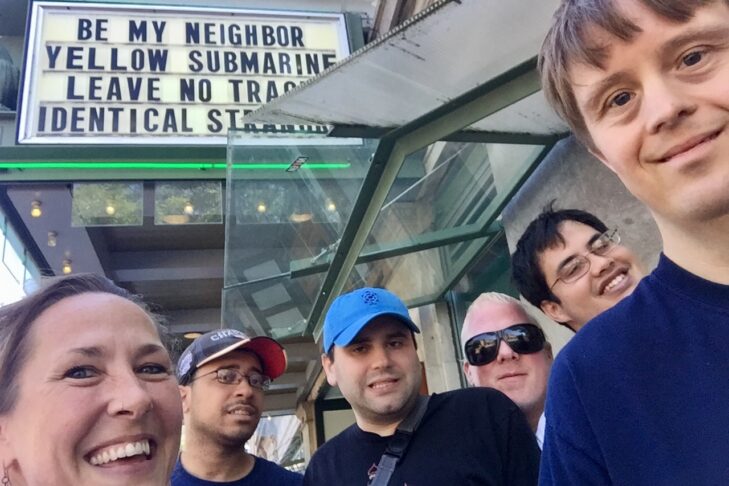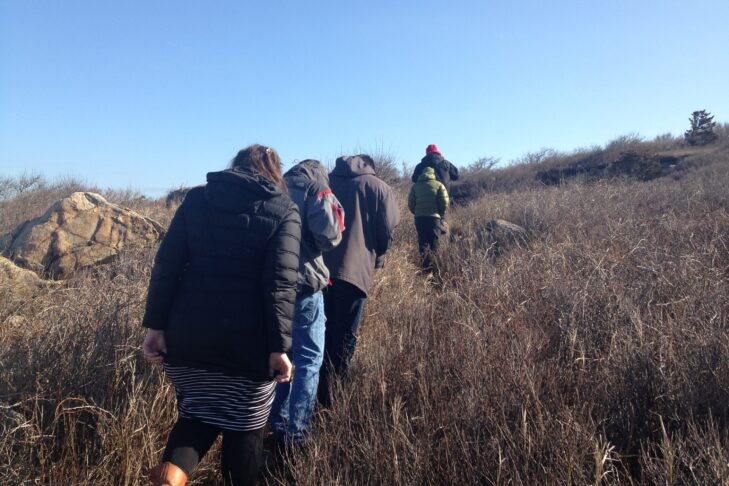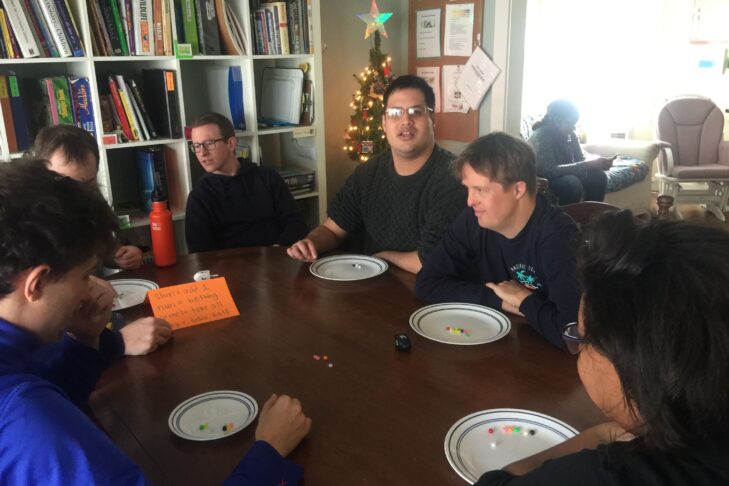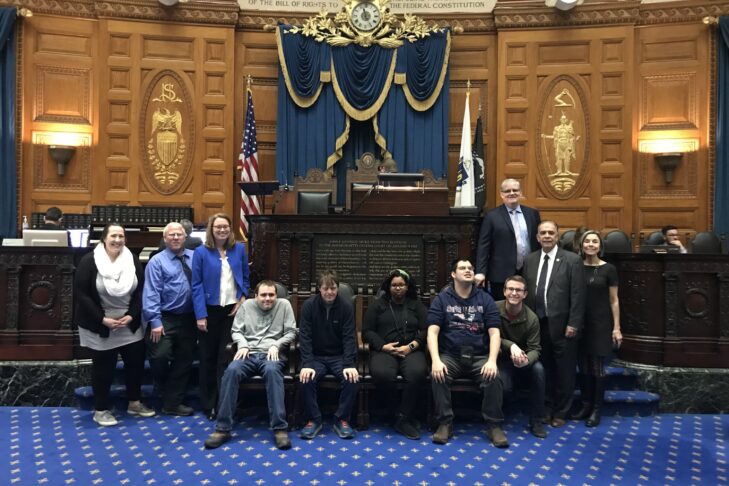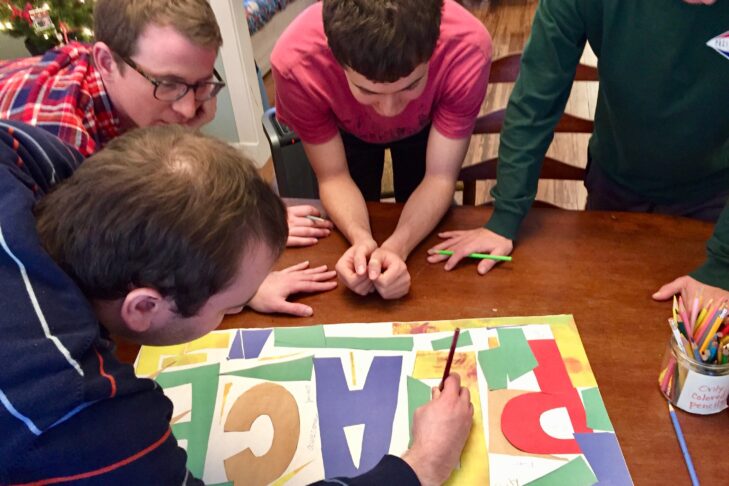In the early 2000s, Deborah Flaschen knew the kind of program that her son, DJ, needed did not yet exist. About to turn 15, DJ, who is on the autism spectrum, would soon age out of school-based services. When Flaschen began researching DJ’s options, she found the primary delivery system for adult services—the Department of Developmental Services—lacking. Not satisfied that any of the community programs she saw would help DJ acquire essential life skills, build on his social awareness, self-advocacy and critical thinking, she founded 3LPlace (the three Ls are learning, living and linking) in 2009. From the outset, Flaschen was committed to providing a life that adults with developmental challenges considered meaningful. That meant offering choices and working toward autonomy.
Flaschen told JewishBoston that in 3LPlace’s early years, she was lucky to have Betsy Closs, then director of Jewish Family & Children’s Service, as a supporter and mentor. Closs, who is now director of Shillman House of 2Life Communities, was instrumental in leading Flaschen through the maze of adult services. Through Closs, Flaschen learned about broad disciplines such as occupational therapy and vocational rehab.
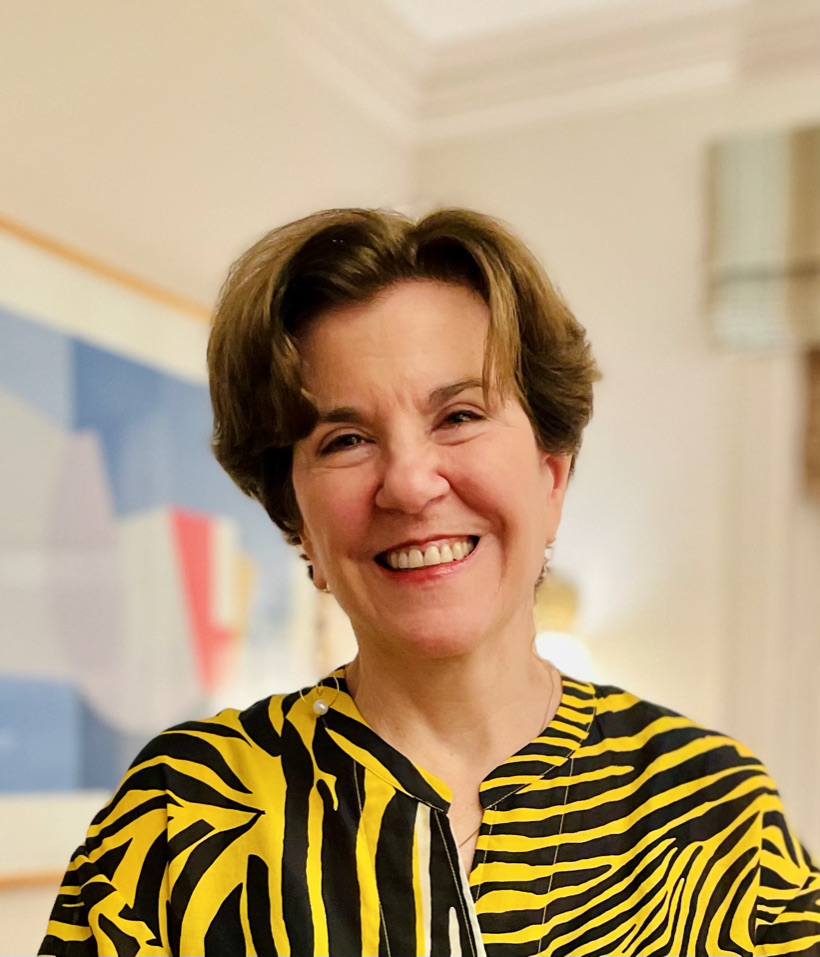
In the ensuing years, Flaschen raised half a million dollars to start 3LPlace and partnered with area universities, including Lesley University, Tufts University and Boston University. In addition, she recruited clinicians, including occupational therapists, speech and language therapists, psychotherapists and special educators. With these collaborators, Flaschen and her 3LPlace team created a broad curriculum for teachers and parents. She pointed out that at over 600 pages, the curriculum she and her experts developed did not offer direct lesson plans; instead, Flaschen and her team have focused on developing critical thinking skills, social awareness and related topics.
Below are highlights of our conversation.
On Flaschen’s early history with DJ:
“My son was diagnosed on the autism spectrum in 1994. We were living in London when DJ was 6 months old. He presented quite typically up until 18 months, and then we noticed in a social setting that he gravitated to the periphery of rooms to fire extinguishers and equipment. He didn’t participate with the kids in the middle. But he was very affectionate and attached to his family, yet his speech was delayed. When we moved back to the United States, he went into an early childhood program where we lived in Chicago. We didn’t have a diagnosis, and someone recommended Dr. Stanley Greenspan in Bethesda, Maryland. Although he passed away, his work and vision still guide our family. The first nonprofit I founded was a parent network within Dr. Greenspan’s group called ICDL, which stood for ‘Interdisciplinary Council on Developmental and Learning Disorders.’”
On Dr. Greenspan’s “floortime” model:
“I felt strongly about Dr. Greenspan’s unique floortime model. Floortime is based on the acronym ‘DIR.’ D stands for ‘developmental,’ the I for ‘individual difference’ and the R for ‘relationship.’ It’s an approach to working with kids who are developmentally challenged. It looks at the constellation of strengths and challenges these children have and uses relationship to support their developmental growth. Unlike the dominant behavioral, which is structured by multiple repetitions for skill-building and then rewarding people based on their performances, Dr. Greenspan’s approach was to get down on the floor and woo a child to engage.
“Floortime can be complicated. Parents need to understand what engagement means. It is harder to teach because it relies on people understanding a lot of abstraction. Playing builds symbolic capacity. However, a lot of adults don’t think symbolically. It’s challenging to help parents help their children think symbolically. So, DIRFloortime was founded to bring together clinicians and parents motivated to extend the model’s reach.”
On what 3LPlace is:
“We’ve built a replicable model that provides daily guidance. In 2014, we opened our doors at 3LPlace, and by that time, our staff had developed lesson plans that were personalized and effective at working with a diverse, small group of people.”
On who attends 3LPlace:
“We have a detailed application process to ensure somebody is a good fit. However, what makes a good fit for us does not cover criteria other people might choose. For example, it doesn’t matter to us if an applicant is verbal. It matters that they want to be part of a community. It matters that they don’t have such body dysregulation that they may harm themselves or others. We also only take people who are independent. In other words, they must have ADL skills. ADL stands for ‘Activities of Daily Living.’ For example, toileting is an ADL. Eating is an ADL. More sophisticated ADLs are meal-planning, waking up and getting to school independently, or budgeting. Our participants range in age from high school graduates up to 44 years old. There is no age cut off, and people come from all over Massachusetts to our Somerville location.”
On what an average day looks like at 3LPlace:
“We hope to be back in-person, but we’re virtual right now. We scaled back our day from six hours to four to help with Zoom fatigue. After attendance, we have check-in, and initial conversations can range from the weather in someone’s town because we’re from many places, to the different sunset times, which is an example of how we use critical thinking. We have a monthly core value. We talk about people who have been notable advocates, such as Martin Luther King, Malala Yousafzai or Greta Thunberg.
“We focus on regulation through body work, relationship-building, internet safety, self-advocacy and film in other sessions. We talked about the presidential election, and we’ve had local politicians speak to us about current events. We’ve looked at Black Lives Matter, learned about Juneteenth and discussed the pandemic. To add to that, we have a sensory-motor space with all sorts of equipment. There’s a wide range of subjects that accommodates our diverse interests. We also have a regular journaling session. Journaling is important for reflection, consolidation, self-advocacy and independent work. Before COVID, we also addressed career plans.”
On her aspirations for 3LPlace:
“I started 3LPlace for adults who have developmental challenges. Each of these adults deserves to have a life that’s meaningful to them. When I looked at my son’s opportunities with traditional Department of Developmental Services providers, he didn’t get to choose what a meaningful life looked like. So, I created programming that does that. People can choose which days they want to come. They choose subjects or skill areas they’re most interested in. They benefit from being part of a social group. Under normal circumstances, we spend two to three hours a day out in the community. We have memberships at the Museum of Science, Museum of Fine Arts, Peabody Essex Museum and various libraries. In the summer, we’re always out hiking. I’m hoping we get back to all those activities very soon.”


